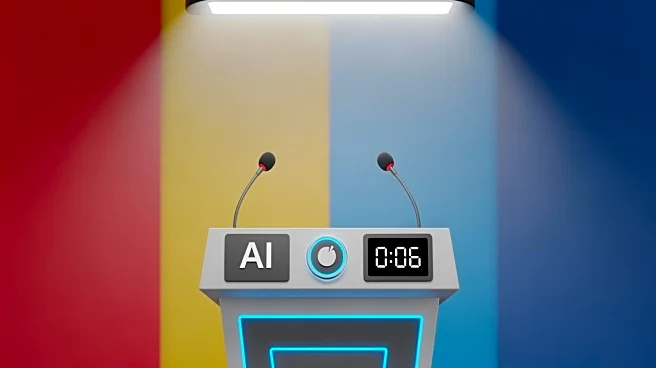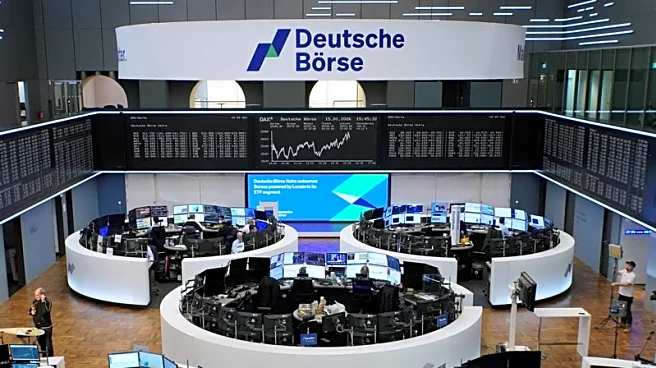What's Happening?
Republican candidate John Reid, running for lieutenant governor in Virginia, conducted a 40-minute debate against an AI-generated version of his Democratic opponent, Ghazala Hashmi. This unconventional
approach was taken after Hashmi declined Reid's invitations for a live debate. The AI, trained on Hashmi's public statements, responded in a robotic voice during the event streamed on Reid's YouTube channel. The Hashmi campaign criticized the stunt as a 'shoddy gimmick,' while Reid's team defended it as a fair simulation. The race for lieutenant governor, a largely ceremonial role, has seen Reid struggling with fundraising compared to Hashmi, who has aired television ads and holds a significant cash advantage. Despite these challenges, polls indicate a close contest between the two candidates.
Why It's Important?
The use of AI in political campaigns raises questions about the future of political discourse and the ethical boundaries of technology in elections. Reid's AI debate highlights the potential for technology to reshape traditional campaigning methods, sparking debate on its implications for democratic processes. The event underscores the challenges faced by candidates in engaging voters and the innovative, albeit controversial, strategies they may employ. As AI technology becomes more sophisticated, its role in politics could expand, influencing how candidates communicate and interact with the electorate. This development may prompt discussions on establishing norms and regulations for AI use in political contexts.
What's Next?
The Virginia lieutenant governor race continues with both candidates vying for voter support ahead of the election. Reid's campaign may seek further innovative methods to engage voters, while Hashmi's team focuses on traditional campaigning and fundraising efforts. The broader political landscape may witness increased scrutiny and debate over the ethical use of AI in campaigns, potentially leading to calls for regulatory measures. Stakeholders, including political leaders and technology experts, may engage in discussions to address the implications of AI in politics and establish guidelines to ensure fair and transparent electoral processes.
Beyond the Headlines
The AI debate staged by John Reid reflects broader societal concerns about the intersection of technology and politics. It raises ethical questions about authenticity and the potential for misinformation in political campaigns. As AI technology advances, its ability to mimic real-life interactions could challenge traditional norms of political engagement, prompting discussions on the need for transparency and accountability. The event also highlights the cultural shift towards digital and virtual platforms in political discourse, potentially influencing how future campaigns are conducted and perceived by the public.











